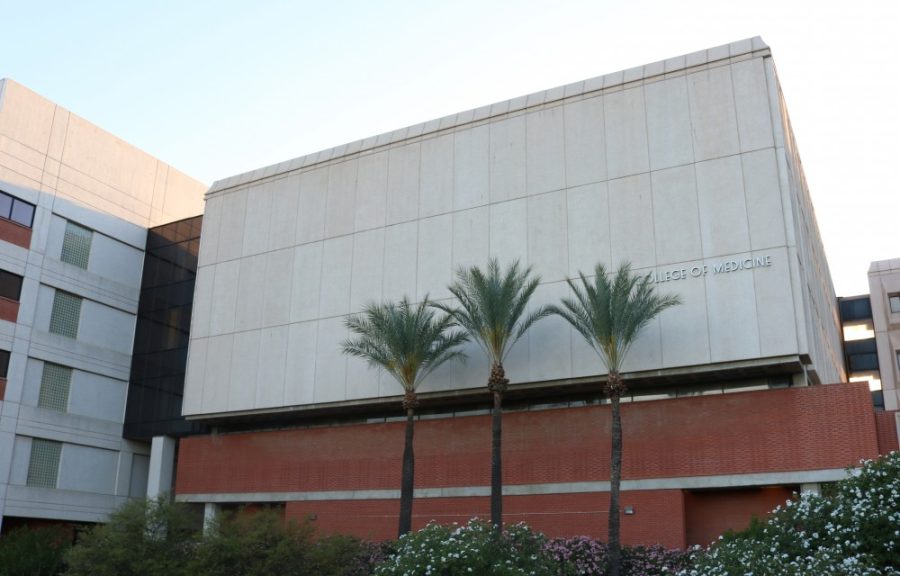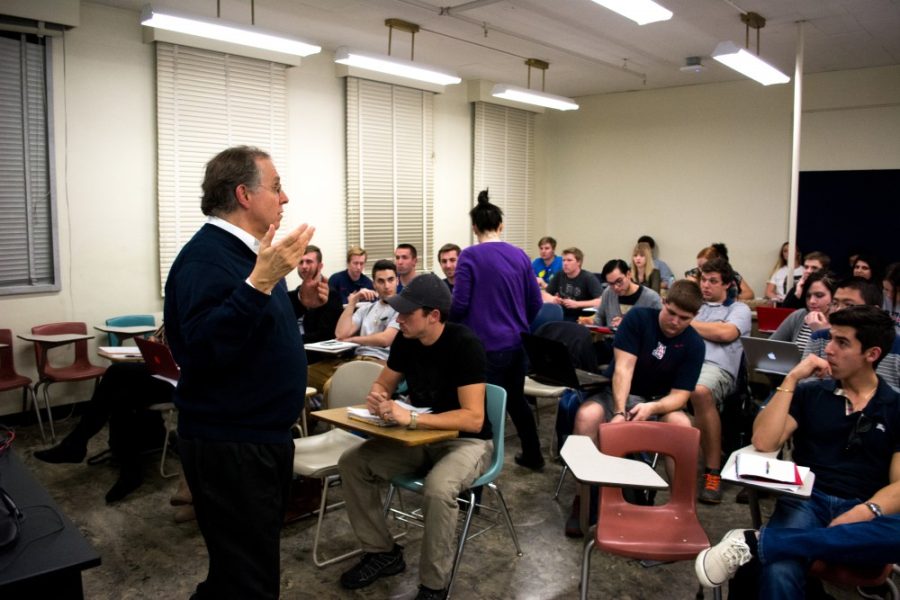The Association of American Medical Colleges reported that over 50,000 people submitted an application to a U.S. medical school last year to fulfill their dreams of becoming physicians. Of these applicants, approximately 20,000 were admitted to a medical school in fall 2015.
The UA College of Medicine – Tucson received a whopping 6,458 applications for its Class of 2020. Only 520 students (8 percent of applicants) received an interview for a final class size of 115 students (less than 2 percent) enrolling fall 2016.
With the applicant pool continuing to grow each year, students are finding it increasingly difficult to distinguish themselves from other applicants.
To gain insight on how students can successfully navigate the admissions process and stand out as applicants, the Daily Wildcat sat down with Cassandra Votruba, program coordinator for the UA College of Medicine – Tucson and doctoral candidate in the public health and pharmacy departments.
Daily Wildcat: What are some of the biggest mistakes that applicants make every year?
Vortuba: One of the biggest mistakes that applicants can make is a lack of clinical exposure, as well as failure to demonstrate that exposure if they do have it. When evaluating clinical experience, we take into consideration clinical volunteering as well as shadowing hours. It can’t be 20 or 30 hours; it needs to be much larger than that. We want to see you have that exposure so you know what you are getting yourself in to. Students will also apply when they don’t meet the minimum GPA and MCAT published on our website. It’s simple: If you don’t meet the requirements, don’t apply. You’re wasting your money.
What extracurricular activities, besides clinical exposure, can students get involved in to distinguish themselves as applicants?
Students should seek to involve themselves in leadership experiences that demonstrate they are willing to serve as a leader. Doctors are leaders. They are the ones who take initiative in patient treatment and we want students to demonstrate they are capable of doing so. We also like to see passion that doesn’t necessarily relate back to medicine. We want to see what unique perspective you can bring to your cohort in school. For example, if you love dogs, volunteer at an animal shelter. Not all of your experiences should be in the medical realm. One thing that we also see a lot is really strong applicants who wait to submit their primary applications until the deadline. We are a rolling admissions school, so students are strongly encouraged to apply early, as they then have the potential to be looked at multiple times in the process.
Can you describe the process for getting an interview here at UA?
You first submit your primary application, which is essentially reviewed to see if you meet the MCAT and GPA minimum. If you do, you receive a secondary application which, once submitted, will be assigned a numerical score by two different secondary screeners. That number for your secondary plays a big part in getting an interview, so you need to have a really strong secondary application. We often see applicants cut and paste generic answers to our questions that don’t fully answer our questions. That being said, we use a complex algorithm that takes into consideration secondary applications and certain aspects of the primary application for interview invites.
Are reapplicants looked upon with a blank slate or are their old applications evaluated as well?
We look at reapplicants with a fresh set of eyes. When we pull up their application, we only see the application for the current cycle. Occasionally, however, the admission committee might look at old applications for any red flags and what you have done to address that. Our biggest concern for reapplicants is we want to see what you have done in your time off. On our secondary application, we have the question, ‘Are you a reapplicant and, if so, what have you done in the past year?’ This question is huge because we want to see what you have done. Were you sitting at home on your couch? Or were you growing and expanding your application with the assumption you may not get accepted? My suggestion for all reapplicants is to also rewrite your personal statement. You should hopefully have a whole new year of experiences and we want you to write about them.
Follow Akshay Syal on Twitter









